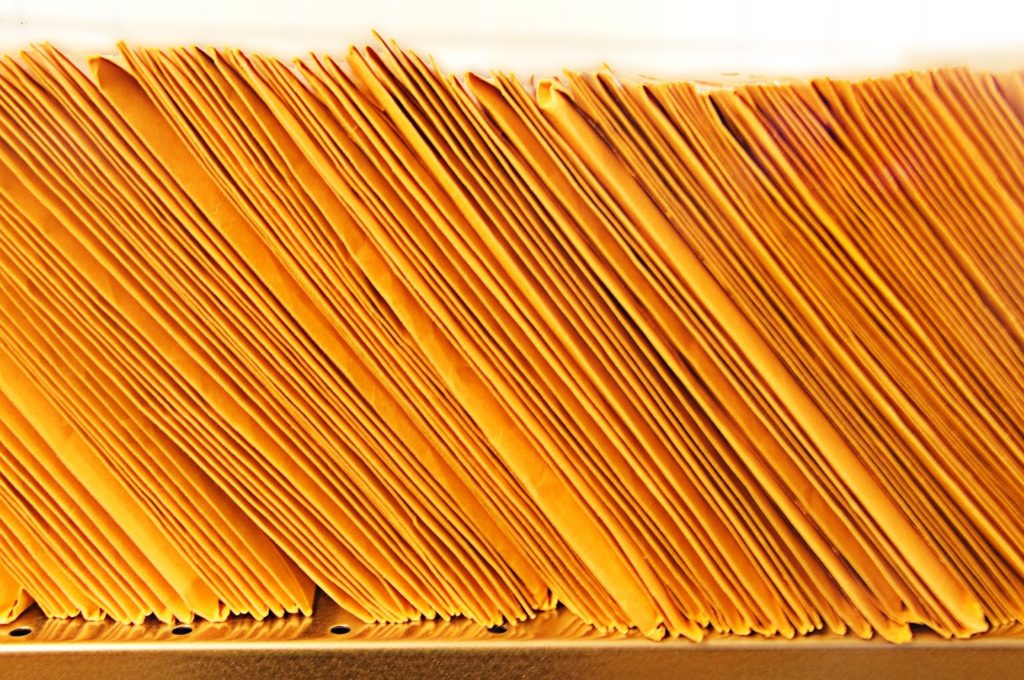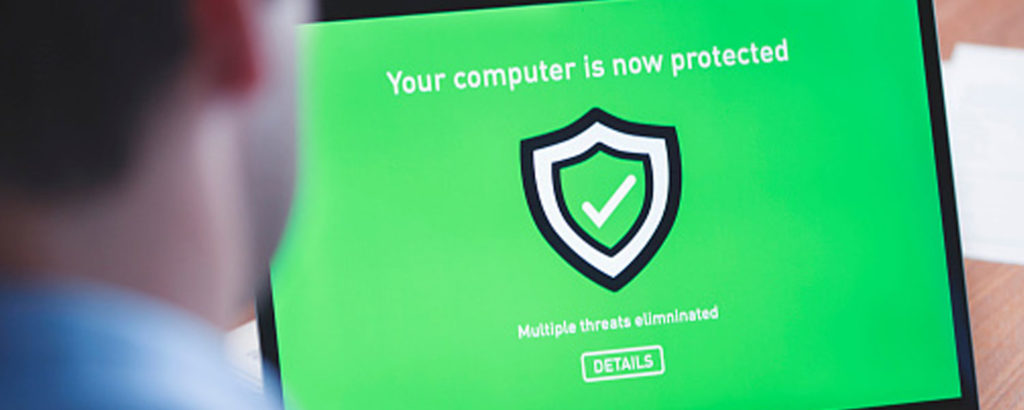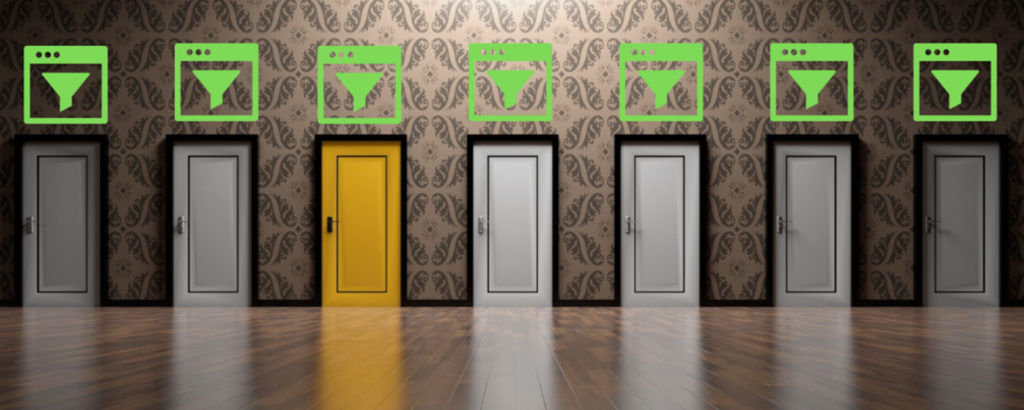
Source: Pixabay
Neither snow, rain, heat, nor gloom of night keeps rookie administrators from dumping emails in the recycling bin! But you shouldn’t let them do that. Besides the fact that your email is a form of intellectual property you should protect, it’s also important to keep them intact for legal and compliance purposes. So how should you protect this important data? Should you use an email archive or a backup strategy for your business?
Email backups are great for disaster recovery. But, because they can be altered, they aren’t great for protecting your intellectual property or for being used in legal cases. For that reason, an email archive is much better.
In this article, you’ll learn what an email archive is and how it differs from an email backup solution. You’ll also see why you need an email archive for regulatory compliance. I’ll then show you what the best archiving solutions on the market are.
What Is an Email Archive?
Email archiving is a systematic approach to preserving emails, including attachments. Generally, an email archive solution stores email data safely, and even stops users from modifying or deleting emails from the archive.
An email archive solution can store email data in a secure repository outside your production environment for safekeeping. These repositories can be off-site storage handled by the company or a cloud-based hosted solution. Your email contents are kept in their original state in a read-only format to stop tampering.
Once you’ve built your archive, you can search for specific emails when required. That’s why archiving solutions should have proprietary indexing. Then, search and browse capability enables you to find email data efficiently.
An email archive solution ensures your business complies with regulatory requirements. It also helps improve knowledge retention, litigation support, and evidence management. Additionally, email archive solutions encompass enterprise file sync-and-share data, instant messaging, and business social media activities.
Email archives are, therefore, crucial for your business if you need data permanence. And this comes in handy when you want to provide evidence during auditing or when contested. But what makes an email archive better than a backup?
How Does Email Backup Differ?
Your email archive is a historical record outside your backup cycle. And these records must stay unchanged for an indefinite period. You should also be able to retrieve these records in their original state when you need to.
On the other hand, an email backup simply creates a backup image of the entire email system. This only allows you to recover a system to its last stored state. But it doesn’t stop anyone from changing or deleting an email’s content.
Check out this helpful comparison table to help you remember what’s what!
| Email Archive | Email Backup | |
| Tamper-Resistance | Yes, it’s designed to be read-only for end users | No, it can overwrite backups to store the latest data iteration |
| Historical Record | Yes, each email data entry is frozen in time | No, email data is from the last save only. It changes as further saving overwrites old data |
| Data Retention Time | Potentially indefinitely, but often based on regulatory and legal needs to save space | Data retained until the next save overwrites pre-existing data |
| Relative Storage Capacity Required | High | Low |
| Relative Storage Speed Required | Low | High |
| Relative Storage Cost | Low | High |
You’re probably thinking, “Is it worth the effort to invest in an email archiving solution?” Yes, it is! Besides ensuring compliance, an email archive will provide several other benefits. Let’s take a look at 6 of them.
Top 6 Reasons to Archive Your Emails

SOURCE: RawPixels
1. Get a Cleaner Inbox That’s Easier to Manage
We all know the endless time that gets lost trying to sift through surplus emails. But if you implement a regular inbox cleaning policy with your users, everyone will then be able to self-govern what to keep and what can go to the email archive. This will organize your users’ inboxes, save them time, and allow them to be more productive.
Your business needs an excellent approach to email retention, management, and email housekeeping. Email archiving deduplicates data and helps you avoid implementing excessive data storage. Doing so lowers your storage costs when archiving your emails. This also improves mailbox quotas and helps reduce operational costs.
2. Stop Losing Important Data
You’re probably all too familiar with the two main struggles SMBs face—bottlenecks in workflows and lost knowledge. And that’s probably because you don’t always have systems with detailed documentation or knowledge retention. But email archive solutions can help you keep a record of your company’s intellectual property. They also prevent users from simply deleting old emails that contain important information.
3. Access Important Data Quickly
It’s a struggle to look for one email in a haystack of emails. But sometimes, you have to. You may need to look for important information or evidence for legal purposes.
An email archiving solution with proper indexing abilities can save you this struggle. They can provide search and browse tools with sub-search capabilities and even provide more metadata types, so you can get more relevant results. And this way, you can find all the data you need in the blink of an eye.
4. Keep Your Business Compliant
Failing to abide by regulatory compliance can result in two things. First, your business will likely be taken to court and criminally prosecuted. In this instance, board members and higher-ranking individuals will likely be imprisoned. Second, non-compliance means your business isn’t sticking to industry best practices, so you aren’t reaping the reward of a streamlined data management approach.
Email archives enable you to comply with general and sector-specific regulatory requirements. Businesses grow on net income generated. But constant lawsuits, fines, and inefficiencies often reduce this net income flow. So, using email archives to stay compliant optimizes your return on investment. And who wouldn’t want that?
5. Protect Your Business against Litigation
When you think of a business, you’ll often think of growth and a positive impact from products and services. But you’ll seldom consider the adverse effects of poorly designed offerings. This includes landing you in court.
For this reason, you must always consider how to defend your business from litigation. One way is to archive all digital communications so you can reinforce your legal claims with substantive proof. Your evidence must be impervious to tampering to ensure it can be admitted as evidence in a legal setting. Email archive solutions help ensure that when you need your proof, you can easily retrieve and use it.
6. Aid Storage Management
If your’e a smaller enterprises, you might find storage management difficult because you need more resources to increase capacity. But you still need to implement management solutions that help streamline each digital process related to your business. SMBs often implement ad-hoc and limited business solutions without considering longer-term objectives. Email archiving is one component any company will inevitably need to:
- Streamline end-user productivity
- Reduce your production environment size
- Protect your intellectual property from bad actors
- Provide regulatory accountability.
The sooner you create an email archive, the faster you can take emails off highly performant, high-cost memory and add them to a low-cost alternative.
In brief, the benefits above show that you need an email archive solution for your business. Next, I’ll cover the security benefits of an email archive solution.
4 Email Archiving Security Benefits
Cybercrime is on the rise and won’t reduce anytime soon, especially with the current technology sector layoffs caused by the recent recession. But an email archiving solution can help you dodge some of these risks. Let’s see 4 of them.
1. Malware Payloads and Nefarious Links
Cybercriminals often use emails to send malicious links. And if your users aren’t paying attention, they might click the link and have their credentials stolen.
Even worse, a malicious link could unleash a full-fledged cyberattack on your business, and you may lose important data. But if you use an email archive solution, you can easily restore your data if your main system has been compromised. And that’s one of the best defenses against cybercriminals’ relentless attempts.
2. Accidental Deletion
Not all threats to your business’s security come from malicious entities. For example, companies like Microsoft don’t back up or archive your emails. Instead, they distribute them across servers for failover protection. So, if you inadvertently delete a crucial email you need later, it’s often lost forever.
But if you archive your own emails, you’ll protect them against any accidents on the providers’ side. You’ll also ensure your users don’t accidentally delete important information.
3. Unalterable and Vexing for Bad Actors
Bad actors could delete or alter your communications. They may also begin mass copying your digital correspondents off your servers, so they can sell your data in bulk.
But archived emails make all your communications read-only. They also make it harder for bad actors to move through your systems and steal your intellectual property.
4. Pertinent Evidence for Auditors and Resolving Contention
Your business is always at risk—not just from bad actors but also from regulatory requirements like audits and litigious parties. So if you need to provide evidence for audits, or even resolve any legal conflicts, you need email archiving.
Email archiving will safeguard all your important data, so you won’t have to spend too much time parsing through emails to find pertinent documents or pieces of information. This will help you avoid costly lawsuits and any expenditures that aren’t directly related to business growth.
Planning ahead and having integrated solutions that work together, like GFI KerioControl, Barracuda Message Archiver, or Acronis Backup Cloud’s support for Office 365 email, will reduce your attack surface and streamline your security operations.
Now let’s look at how easy archiving emails is and why you shouldn’t fear this process!
How to Archive Emails
Many email archive solutions exist, and the process varies depending on the software. That said, all procedures for archiving are pretty straightforward. Below are a few of the most common platforms with their methods to archive your emails:
Gmail Desktop
- Select the emails for archiving using the checkboxes on the left
- Click Archive on the toolbar
- Find emails in the All Mail tab
Gmail Mobile
- Tap Archive when the message is open, or swipe the email horizontally in your inbox
- Select all emails you want to archive
- Select Archive
Apple Mail Desktop
- Select the emails for achieving
- Click Archive
Apple Mail Mobile
- Tap Archive from inside the email
- Swipe the email horizontally from your inbox
Outlook Desktop
- Click File and select Cleanup Tools
- Click Archive
Outlook Mobile
- Long-press an email for the archive icon
- Select the Archive icon
- Go to Settings and select Swipe Options to set Archive as a swipe option
Now you know how easy it can be to archive an email. Let’s now review the top 3 email retention solutions available on the market!
Top 3 Email Archiving Solutions

SOURCE: Openclipart
Next, you have to decide which email retention solution meets your business needs. To help expedite the process, I’ve reviewed the top 3 email retention solutions below.
1. Acronis Backup Cloud for Office 365

SOURCE: Acronis
Acronis Backup Cloud Support for Office 365 Email provides a valuable archiving service to protect all your email data. You control your backups and can centrally view all backup activities. You can also receive alerts for all end user-protected data.
Acronis’s email backup solution connects to your end-user’s Microsoft 365 account using an agent hosted in the user’s client environment. All of your mailboxes are then automatically detected, including new ones as they’re created. You can even create customized backup schedules with unique settings for each mailbox. In short, each user can orchestrate an effective yet flexible backup plan.
Additional benefits:
- Protect your Office 365 accounts with a fast and efficient backup.
- Eliminate the operational overhead and streamline backups with Odin Service Automation.
- Ensure regulatory compliance by meeting data protection regulatory requirements and providing robust recovery.
- Offer users the flexibility to back up their data locally or to private or public clouds.
- Reduce complexity with a centralized web-based data protection dashboard.
Price: On request. Contact the Acronis Sales department to learn more.
2. GFI Archiver

SOURCE: GFI
Don’t ever lose your digital communications with GFI Archiver. This solution helps you archive your email history and makes it easier for you to find necessary information when you need it. Archiver also allows you to meet regulatory requirements, reduce server space, and improve email performance.
GFI Archiver uses rule-based archiving and allows you to store data using specific metadata. The tool even lets employees decide which emails they want to archive, and users can manually archive a single email, folder, or selected emails from inside Outlook by using an Outlook connector. GFI Archiver also offers compatibility with Microsoft Exchange or other email servers like GFI KerioConnect.
Additional benefits:
- Archive emails and files in a centralized tamper-proof location.
- Meet industrial compliance and e-discovery and help internal investigations.
- Retrieve data quickly using either a desktop or mobile.
- Automate indexing before archiving data, enabling faster search functionality.
- Use single-instance storage (SIS) to store one copy of a multi-recipient email to save space.
Price: Subscription model that scales with users. Contact a GFI Archiver expert to learn more.
3. Barracuda Message Archiver

Barracuda Message Archiver is a tool that helps you retain and retrieve all your email communications. It also reduces your email storage requirements and boosts productivity. The message archiver also supports mobile or desktop access, so you can access your archive anywhere.
Message Archiver works with Office 365 and Google Workspace, and email servers like Exchange, GroupWise, and Domino. You can also get messages directly from your email servers using the IMAP or POP3 protocols. Barracuda provides a completely cloud-based solution, so you don’t need to install any software.
Additional benefits:
- Archive data in a dedicated tamper-proof repository for better data protection.
- Support audit and discovery tasks with multi-level search and tagging capabilities.
- Access archived data quickly wherever users are working.
- Choose a physical or integrated virtual solution for on-site or in-the-cloud deployment.
- Receive 24/7 technical support staffed by in-house security engineers — no phone trees.
Price: On request. Contact Barracuda’s experts or request a free trial.
You now have everything you need to make an informed decision, so let’s recap!
Final Thoughts
No matter what industry you’re in, at some point, you’ll need to look through your old emails—either for an audit or for a legal case. And in those cases, a simple email backup won’t be enough. It isn’t tamper-proof, so it won’t hold its ground and properly defend your business.
Instead, you need an email archive solution. Email archives help you comply with regulatory requirements and ensure you can defend your business against any legal disputes. And as a bonus, they improve your performance and productivity because they offload old data onto low-cost storage solutions and save you time parsing through your old communications.
Also, email archiving solutions can protect users from “click the link” attacks, especially in small and medium-sized businesses with limited cybersecurity. It isn’t enough to warn your users about email security risks. Instead, you should enforce your security yourself. The best way to do that is through an email archive solution.
Learn more about email archiving and similar topics in the FAQ and Resources section below!
FAQ
What are email spam filters?
Email spam filters look at messages’ headers and check whether the recipient knows the user. They also check if the domain the email originated from is safe. But to do that, spam filters have to scan and classify all inbound emails according to a specific set of rules. For example, some utilize simple pattern recognition and rule sets, while others use complex machine learning (ML) algorithms to spot a nefarious email.
What is email spoofing?
Cybercriminals forge trusted sources’ addresses, or fake the sender’s name or email metadata. And that’s a spoofed email. They generally trick users into trusting the email and performing any actions the cybercriminal requested. Alternatively, email spoofing can occur if cybercriminals gain access to a genuine email server and use it to send targeted emails.
What is a secure email gateway?
A secure email gateway (SEG) is a solution that screens email data packets for malware in email bodies. Solutions can be hardware or software barriers between your business and the outside world. An SEG collects all the emails you receive, assesses if they’re safe, and forwards them to the recipient. And this way, it protects your devices against malicious emails.
Why use LAN monitoring?
LAN monitoring, as the name suggests, monitors mapped network devices. And if one of them is taken offline, you get a notification. You can also use LAN monitoring tools to improve router and switch performance with load leveling, changing the device’s behavior, and traffic speed policies. Knowing the storage device’s capacity also helps you plan to scale and meet user requirements.
When should I add an email archiver to my business?
As soon as possible. An email archiver improves email workflow and retains valuable historical email data in a tamper-proof system for legal complaints. It also enhances the network’s performance. Additionally, email archiving solutions help you meet regulatory compliance. An email archive solution also helps protect your intellectual property from bad actors that might access your email accounts.
Resources
TechGenix: Article on Email Security Policies
Learn about 5 top email security policies that can help protect your business against bad actors.
TechGenix: Article on Advanced Persistent Threat Protection
Discover how you can protect your business against advanced persistent threats.
TechGenix: Article on Writing Compliance Reports
Find out how to write the perfect compliance reports.
TechGenix: Article on Next-Gen VPN Protocols
Get up to speed on the latest VPN protocols and how they can protect your network traffic.
TechGenix: Article on Email Cloud Backups
Learn how email cloud backups can save your business from ruin.




Not even a mention of ‘MailStore’? There is a free to use ‘Home’ version and a commercially licensed ‘Server’ edition.
Have been using the ‘Home’ version for almost 15 years and have a 26 GByte mail archive, which is very searchable and fast on my aging computer (4th generation Intel i5 CPU).